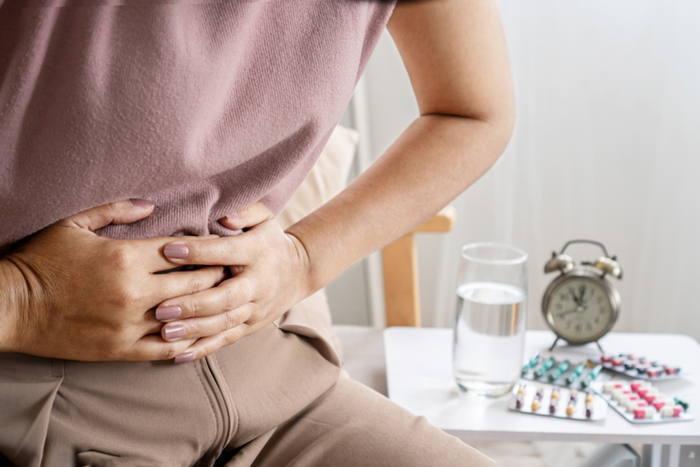Two types of diet seem to work better than drugs in the treatment of irritable bowel syndrome (IBS), a 4-week clinical study published in the Lancet Gastroenterology & Hepatology has revealed: the secret is to eat little sugar, keeping consumption high of dietary fibre.
Of the diets tested, one was designed to be low in a specific group of sugars and carbohydrates found in dairy products, wheat and certain fruits and vegetables, “FODMAPs”, short-chain carbohydrates that are poorly absorbed in the gastro-intestinal tract. The other diet is high in fiber (fiber sources include nuts, seeds, legumes, and vegetables, such as kale) but low in all types of carbohydrates, sugars, and starch.
The study was led by Sanna Nybacka of the University of Gothenburg in Sweden. Both diets led to greater symptom improvements after four weeks than standard drug treatment.
IBS can cause diarrhea, constipation, bloating, and abdominal pain. It is generally recommended to avoid caffeine, alcohol or spicy foods. People can also take symptomatic treatments, such as laxatives for constipation or medications for diarrhea.
The team asked about 300 people with IBS to use one of three approaches: take medications as needed for their symptoms or adopt one of two diets. For the dietary approaches, people were sent free groceries, as well as given detailed meal plans and recipes to follow.
After one month, 76% of those on the low-FODMAP diet reported a significant reduction in symptoms, compared to 71% of those on the low-carb diet and 58% in the drug treatment group .
Remarkably, a low-carb, high-fiber diet, which did not exclude FODMAP-containing foods, was approximately as effective as the low-FODMAP approach, Nybacka concludes.
breaking latest news © Copyright ANSA
